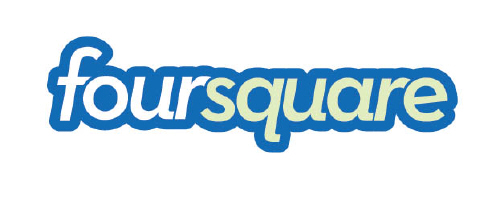Imagine a world where almost anybody could trace your steps: knowing what area you live in, where you like to stop by for your morning coffee or when you head to the local for a few pints.
Welcome to the era of geotagging. In an information-hungry world we have armed ourselves not only with veritable GPS tracking systems but we also pepper this with pictures, descriptions and plenty of personal comments, thanks to the wonderful services of smart phones, Twitter, Facebook and now things like FourSquare and Gowalla, where the sole purpose is to tell people exactly where we are and what we happen to be doing.

Naturally, there are benefits to innovative technologies like these: collaboration, socialising, recommendations based on where we live and what we already like.
With Google Latitude, people we trust and allow to access our profiles can see where we are automatically on Google Maps using the GPS sensor embedded in our mobile phones. Services such as FourSquare and Gowalla have mobile applications that take this to different level: we are encouraged to check in to destinations and, in turn, enrich our friends’ experiences with tips and notes on nearby facilities – ie, cafes that have free Wi-Fi connectivity.
This works especially well at business events where early adapters are already telling each other via Twitter and FourSquare where the best talks are and who is attending.

Privacy concerns
The flip side of this is oversharing, as the founder of Pleaserobme.com, Frank Groeneveld, recently demonstrated. A public Twitter account combined with FourSquare integration results in thousands of people letting the web at large know when they leave their houses and where they live. A clever thief could mine this information and essentially draft up a wish list, says Groeneveld.
Of course, this is not technology at fault but how we use it. While socially oriented location-aware services evolve at a rapid pace, the protocol for using these technologies has not been clearly established and it is often the case that we are not aware of the extent to which we expose ourselves, our possessions and our property to the online world.
What we need to do is build a web of trust, only sharing sensitive information as you would your personal/business calendar, for example.
Refined netiquette
Whatever protocol or ‘netiquette’ we come to agree on it is certain that location-aware networks are the future of advertising and online business because there are already more than 4,000 mobile applications that make use of location data.
As Andre Darling of BrandRepublic said: “The fact that a mobile device is so personal can be both a strength and a weakness. It allows advertisers fantastic reach, as people almost always have their phone with them.”
Reminder: Last call for share of €1m prize
Irish apps developers have a chance to fight it out with renowned developers such as Gino Micacchi, creator of Mobnotes, Golden Gekko and Aperto Move, in the Vodafone App Star Competition, which closes on 31 March 2010.
Vodafone has put out a last call, urging app developers in Ireland to take a chance to claim their share out of a €1m prize fund. To enter, go to the website.
By Marie Boran
Photo: Irish apps developers have a chance to fight it out with renowned developers in the Vodafone App Star Competition, which closes on 31 March 2010